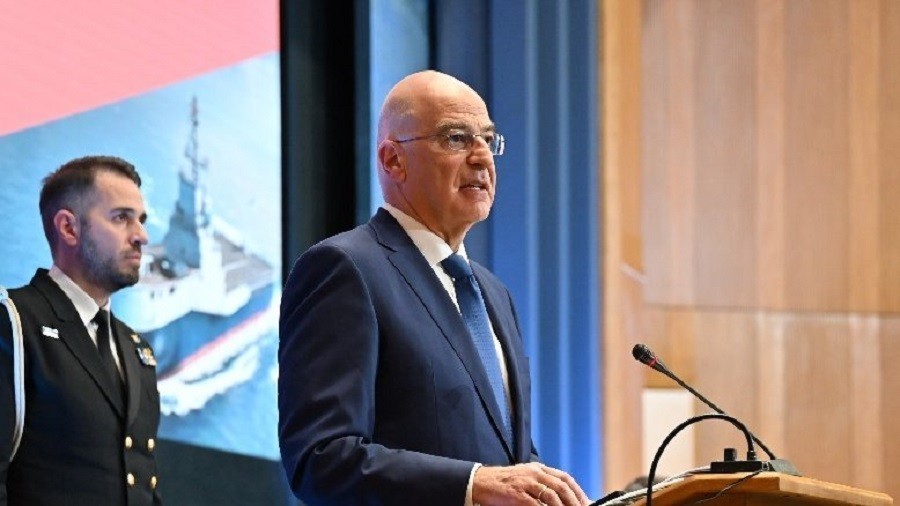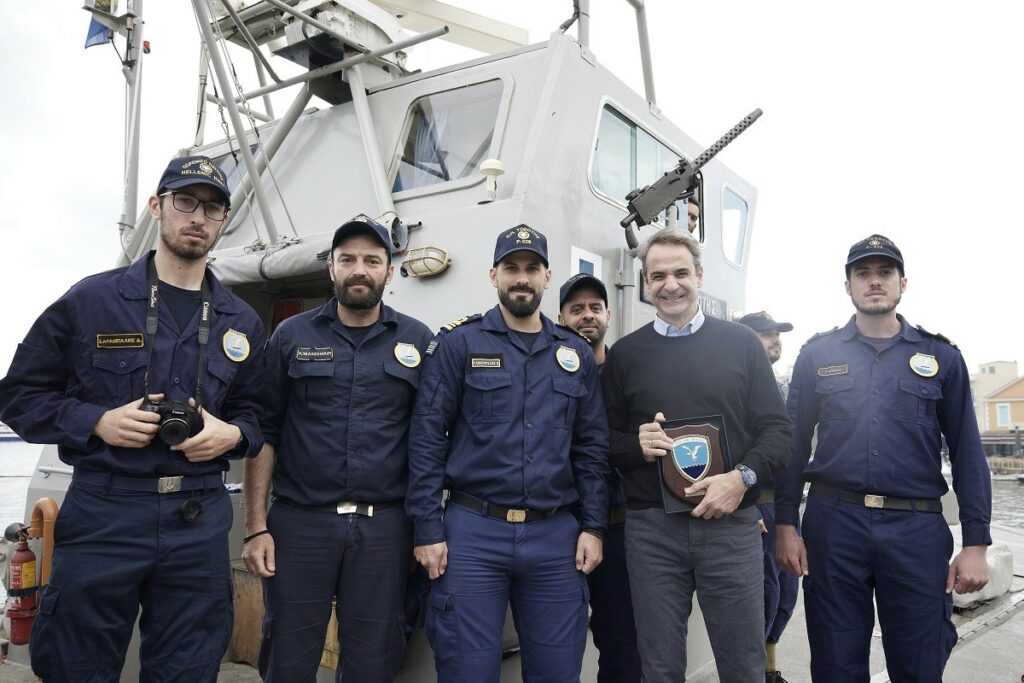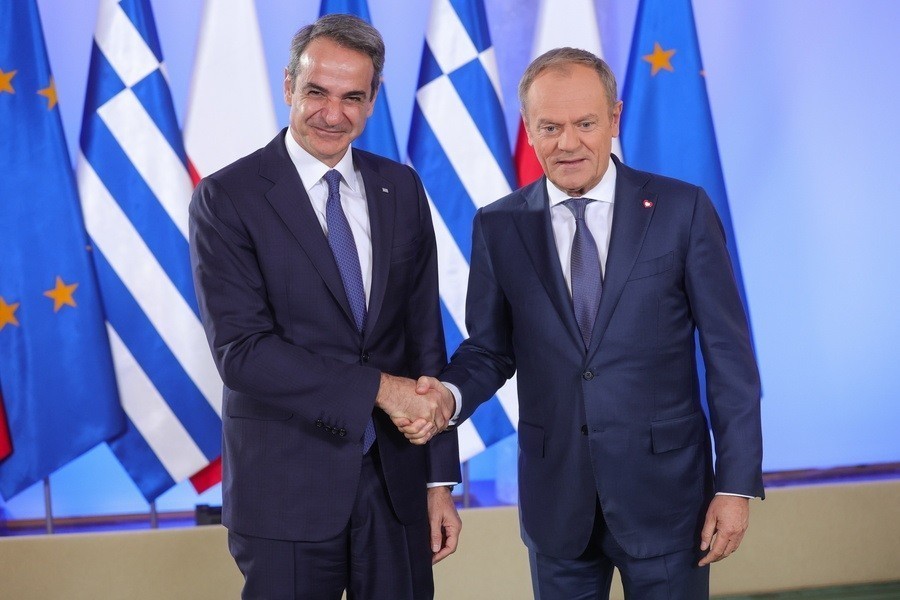
By Constantine Tzanos*
In the aftermath of the downing of the Russian jet by Turkey, on 27 November 2015, Greek prime minister Tsipras tweeted to Turkish prime minister, Ahmet Davutoglu: “Fortunately our pilots are not mercurial as yours against the Russians”, and in two other tweets he wrote: “What is happening in the Aegean is outrageous and unbelievable”, “We’re spending billions on weapons. You–to violate our airspace, we–to intercept you.”
These tweets received extensive publicity internationally.
For many years, Turkey is violating the Greek airspace on a daily basis. For example, in 2014 Turkey violated the Greek air space more than 2,000 times. And Turkey does not violate routinely only the Greek airspace, but also its maritime borders. For example, from January to July 2015 the Turkish Navy made 175 incursions into Greek waters. Last June, the Turkish Navy ship, the Gelibolu, repeatedly went on “patrol” in Greek territorial waters.
Many times the international media misleadingly report that “This is due to a dispute over the sovereignty of islands in the Aegean, as well as other factors such as the delimitation of territorial waters and national airspace.” The sovereignty of islands in the Aegean is dictated by international treaties, like the treaty of Lausanne, and the same holds for territorial waters and airspace. It is an established rule of international law that every state has exclusive sovereignty over the airspace directly above its territory, including its territorial sea. The extent of Greece’s territorial waters was set in 1936 to six nautical miles from its natural coastline, and in 1931 its national airspace was set to ten nautical miles. The extend of Greece’s airspace was not challenged by Turkey until 1975.
According to customary international law, codified in the UN Convention on the Law of the Sea (UNCLOS), Greece has the right to extend its territorial waters to twelve nautical miles in conformity with the provisions of UNCLOS. In 1988 President Ronald Reagan extended the U.S. territorial waters to twelve miles. Turkey has extended its territorial waters in the Black Sea and the Mediterranean to twelve nautical miles since 1964. However, Turkey considers the Aegean as a special case, and on 8 June 1995 the Turkish National Assembly issued a resolution granting the Turkish government full and perpetual competence to declare war (casus belli), should Greece decide to extend its territorial waters over six nautical miles. This resolution is a violation of the UN charter, which requires that “all Members shall settle their international disputes by peaceful means” and “all Members shall refrain in their international relations from the threat or use of force,” as well as of the North Atlantic Treaty binding NATO members. Turkey is refusing to submit the issues in the Aegean to the International Court of Justice as Greece has proposed. In view of Turkey’s aggressive stance, so far Greece has refrained from extending its territorial waters as provided by the UNCLOS. However, during the UNCLOS ratification, Greece stated explicitly that it reserves the right to exercise its rights under this international law at any point in time.
On 29 November, 2015, the CNN reporter Hala Gorani interviewing the NATO Secretary-General Jens Stoltenberg on the downing of the Russian jet by Turkey, asked him: The Greek prime minister accused Turkey of violating Greek airspace how does NATO react to that? The Secretary ignored the question and responded saying that Turkey is in the front of a very, very unstable difficult situation in Syria…this creates a very special situation…; Gorani: I was actually referring to the Greek prime minister accusing Turkey of violating Greek airspace, how does NATO react to that? Stoltenberg: But I tried to explain to you they are completely different situations..; Gorani: I understand that, but there is a violation according to Greece of its airspace by Turkey so there are two standards here. Stoltenberg: No. We underline the importance of respecting the airspace of any nation…Turkey is a very special situation…; Gorani: you are saying Turkey should get a pass, because it is in a difficult neighborhood and a difficult situation right now, for violating Greek airspace for instance; Stoltenberg: I am saying that the air space of all nations should be respected…The NATO Secretary had to be asked repeatedly by a tough conscientious journalist to finally utter a generality, the air space of all nations should be respected – no answer to the question: is there a double standard here?
On 4 December 2015, the U.S. Secretary of State John Kerry, while visiting Greece, was asked by a reporter: “Does Greece have the right to protect its borders, and I am talking about violation of Greek airspace just like in the case of Turkey? Or are there two standards in this?” Kerry responded: “Of course there shouldn’t be two standards….Greece and Turkey obviously have long-established diplomatic channels for addressing Aegean issues… I simply encourage Greece and Turkey, as NATO allies, both of them, to work together to maintain good neighborly relations and to encourage peace and security in the region by cooperating together. And I am confident that they will and that that issue can be resolved.”
Secretary Kerry and the NATO Secretary General know very well that in this longstanding issue between Greece and Turkey, brought to the attention of NATO by Greece many times, Turkey is ignoring international law and the North Atlantic Treaty. Instead, Greece is pushed to an asymmetric negotiation where coercive power is the deciding factor and not the provisions of international law. The leading member of the Alliance, and a member of the UN Security Council lets the diplomatic channels between the two countries do the work, and if Turkey would choose aggression, the confrontation may be averted by pressuring the weak side to make concessions, as was done during the Imia crisis. Turkey’s attitude is: I have a claim on your house let us negotiate about it.
Turkey applied for EU membership in 1987, and is pushing very hard to join the Union, although is not willing to comply with the accession requirements. Turkey’s prime minister, stated recently EU “membership is a strategic objective for us.”
The 2015 EU progress report on Turkey’s accession found that that Turkey’s “commitment was offset by the adoption of key legislation in the area of the rule of law, freedom of expression and freedom of assembly that ran against European standards… The settlement process of the Kurdish issue came to a halt… The independence of the judiciary and the principle of separation of powers have been undermined… Turkey also needs to effectively guarantee the rights of women, children, and lesbian, gay, bisexual, transgender and intersex (LGBTI) individuals and ensure sufficient attention to the social inclusion of vulnerable groups such as the Roma. There was significant backsliding in the areas of freedom of expression and freedom of assembly… There was no progress on normalizing bilateral relations with the Republic of Cyprus…. Turkey needs to commit itself unequivocally to good neighborly relations and to the peaceful settlement of disputes in accordance with the United Nations Charter, having recourse, if necessary, to the International Court of Justice…. urged Turkey to avoid any kind of threat or action directed against a Member State.”
In 1974, in violation of international law, Turkey invaded Cyprus and since then disregarding numerous UN Security Council resolutions Turkey still occupies about 40% of Cyprus, a UN and EU member state. In violation of the international law, Turkey has settled over 100,000 of its own nationals in the occupied northern Cyprus.
Turkey’s support to ISIS, and its turning “a blind eye” to “human trafficking-gangs” that ferry daily thousands of illegal immigrants from Asia and Africa to Greece have been and are extensively covered by the international media. In violation of Iraq’s sovereignty and territorial integrity Turkey is refusing to withdraw its troops from northern Iraq. On 11 December 2015, Iraq appealed to the UN Security Council to demand an immediate withdrawal of these troops.
Last October German Chancellor Angela Merkel visited Turkey and stated that Germany is ready to drive forward Turkey’s EU accession. On 27 November 2015, the EU “agreed with Turkey’s government for Ankara to take steps to cut the flow of migrants into Europe in exchange for EU cash and help with its bid to join the 28-nation bloc.”
On 21 October 2015 The Daily Beast wrote: In 2005, Merkel, was elected “on the promise that Turkey would never join the EU. In May 2010 Merkel …ruled out the possibility of Turkey becoming member of the European club…Davutoglu and Merkel…have to cast aside old principles and promises in order to save what they have. …The current deal–refugees for EU membership–is for both the only way out of a situation they themselves created.”
There should be no wonder that our World is in a horrendous mess, when its powerful actors turn a blind eye to international legality and justice for the sake of expediency and to serve their short term interests.
Constantine Tzanos is a nuclear engineer living in the U.S., and working at a research and development laboratory in the area of nuclear energy
www.huffingtonpost.com

